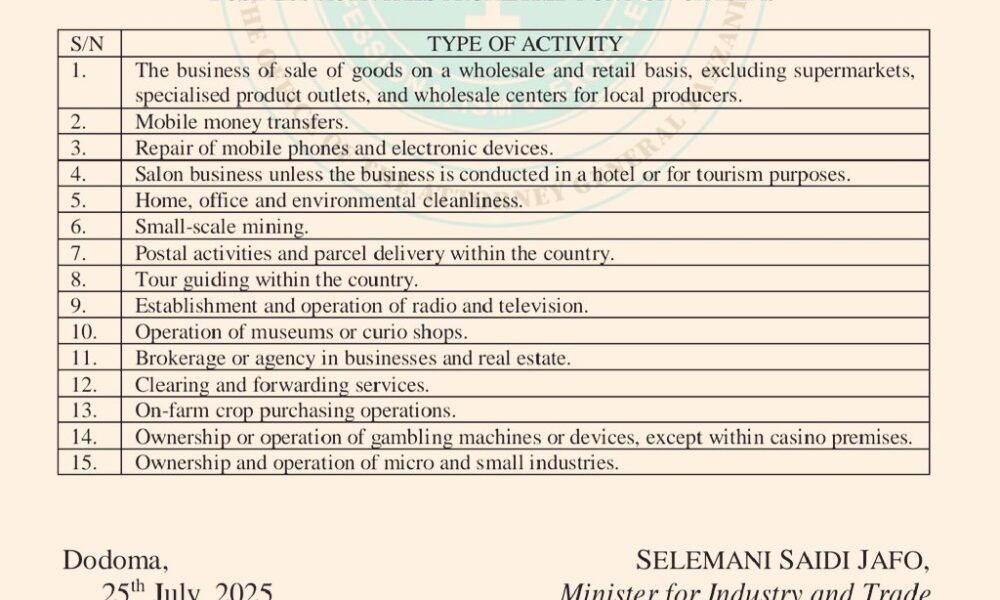
Published July 29, 2025
The Government of Tanzania has moved to tighten economic protectionism by banning foreign nationals from engaging in at least 15 categories of business traditionally reserved for citizens. This comes under a new directive issued by the Minister of Industry and Trade, Selemani Jafo, through The Business Licensing (Prohibition of Business Activities for Non-Citizens) Order, 2025, which took immediate effect.
Among the banned sectors for non-citizens are:
Wholesale and retail trade (excluding supermarkets and specialty outlets)
Small-scale mining
Mobile money services
Operation of radio and television stations
Gambling machine operations outside casinos
Tour guiding
Real estate brokering
Clearing and forwarding services
Licensing authorities across the country have been instructed not to issue or renew business licenses for foreigners involved in these activities.
“Upon coming into effect of this order, licensing authorities shall not issue or renew a licence for a non-citizen to carry out any of the business activities prohibited under this order,” the Ministry declared.
Local Pressure and Foreign Influence
The order follows mounting pressure from local traders and citizens, especially in trading hubs like Kariakoo in Dar es Salaam, who have accused foreign nationals—particularly from China—of dominating informal retail and small-scale trade. These spaces, locals argue, should be safeguarded for Tanzanian entrepreneurs struggling to compete.
With this move, Tanzania joins several other African nations such as South Africa, Ghana, Zimbabwe, Nigeria, Swaziland, Zambia, and Botswana, all of which have adopted similar laws to protect local business ecosystems.
Reactions and Regional Implications
The new directive has drawn mixed reactions. Proponents argue that it will empower Tanzanians and preserve economic space for nationals.
“This is really going to help the people of Tanzania to work and earn from their own country,” wrote one commenter, Gloria. “I just pray this comes to Uganda.”
However, critics warn that the measure could backfire by discouraging small-scale foreign investment and undermining regional integration efforts under the East African Community (EAC).
“This is a very confusing directive, particularly when EAC countries are moving towards unification,” noted Saladin Amed. “Tanzania must also open up to foreign investment and improve education to match regional standards.”
As the region grapples with balancing national interests and cross-border integration under the EAC Common Market Protocol, Tanzania’s directive sets a precedent likely to spark debate in neighboring countries—including Uganda—over how best to protect local businesses without stifling foreign enterprise.









